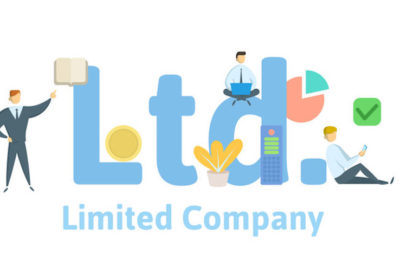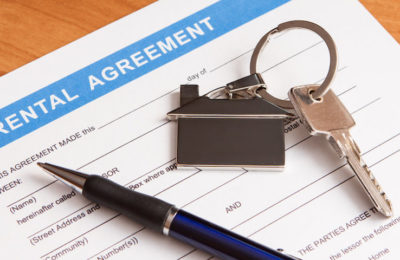The Renters’ Rights Act 2025 is now law. It received Royal Assent on 27 October 2025, and the government has published a detailed roadmap showing how the Renters’ Rights Act will be implemented in three phases, beginning on 1st May 2026.
If you let property in England, the Renters’ Rights Act will reshape how you create tenancies, how you increase rent, how disputes are handled and, in the longer term, the standards your properties must meet. This guide explains the changes in a clear, landlord-friendly way so you know what to expect and what to do next.
The Renters’ Rights Act roadmap: understanding the three phases
The government is introducing the Renters’ Rights Act reforms gradually to give landlords time to adapt.
Phase 1 – from 1st May 2026
This phase transforms private tenancies under the Renters’ Rights Act. Section 21 “no-fault” evictions will end, fixed-term Assured Shorthold Tenancies (ASTs) will largely end and most tenancies will become Assured Periodic Tenancies (APTs). Rent increases will be limited to once per year, rental bidding will be banned and you will not be allowed to ask tenants for more than one month’s rent in advance.
The Act also prohibits discrimination against tenants with children or tenants receiving benefits. Tenants gain a stronger right to request pets, councils receive expanded enforcement powers, and landlords must issue new written information to tenants, including a government ‘Information Sheet’.
Phase 2 – from late 2026
The focus shifts to transparency and complaint-handling. A new PRS Database will require every private landlord to register themselves and each property, providing information such as safety certificates and EPC ratings. Registration will carry an annual fee.
A PRS Landlord Ombudsman will follow, giving tenants a free route to resolve complaints. Membership will be mandatory once the system is fully operational, which the government currently expects to be in 2028. This phase will also extend the Renters’ Rights Act tenancy reforms to the social rented sector.
Phase 3 – 2030s (exact dates to follow)
The final phase raises housing standards. A Decent Homes Standard will apply to private rentals for the first time. Awaab’s Law will introduce legal timeframes for fixing serious hazards such as damp and mould. These changes will sit alongside plans to raise energy efficiency expectations, including a previously consulted-on ambition for most rentals to reach EPC C by 2030, and an updated Housing Health and Safety Rating System (HHSRS).
Phase 1 in detail: what changes from 1st May 2026
Ending Section 21 under the Renters’ Rights Act
From 1st May 2026 you will no longer be able to use Section 21 to end a tenancy. Instead, you’ll rely on updated Section 8 possession grounds. These include selling the property, moving yourself or a close family member in, plus serious rent arrears and anti-social behaviour by tenants. If you intend to use a Section 21 notice under the current rules, you must serve it before 1st May 2026 and start any court claim by 31 July 2026.
Assured Periodic Tenancies replace fixed terms
Most new and existing private tenancies will convert to Assured Periodic Tenancies with no fixed end date. Your tenant can stay indefinitely unless you prove a Section 8 ground. If they wish to move out, they will be required to give two months’ notice.
New rent-increase rules
Rent can only be increased once every 12 months under a revised Section 13 notice. You must give at least two months’ notice, and your tenant can refer the increase to the First-tier Tribunal (Property Chamber) if they believe it is above market level. Any rent clauses that conflict with the new statutory rules will not apply once the new regime begins.
Limits on rent in advance and rental bidding
The Renters’ Rights Act bans rental bidding, meaning you cannot invite or accept offers above the advertised rent. You will also be prevented from requiring more than one month’s rent in advance at the start of a tenancy.
Pets, discrimination and enforcement
Tenants will have a clearer right to request a pet and you must reply within 28 days, giving a valid reason if you refuse. It will become unlawful to disadvantage prospective tenants because they have children or receive benefits. Councils will also gain new powers from December 2025 and tougher civil penalties for certain offences from May 2026, including fines that can reach £40,000 for serious or repeated breaches.
New paperwork requirements under the Renters’ Rights Act
For tenancies created after 1st May 2026, you must provide specific written information within the tenancy agreement, with a draft government template due in January 2026. For existing tenancies, you must give tenants the government’s new ‘Information Sheet’ by 31st May 2026, and where the agreement was originally verbal, a written summary of the main terms.
How to prepare now for Phase 1 of the Renters’ Rights Act
Start by reviewing your tenancy portfolio. Make a simple record of each property, the type of tenancy, the rent, and whether there is a written agreement. Assume the tenancy will convert to an Assured Periodic Tenancy on 1st May 2026 and that you will not have access to Section 21 from that point. If you know you will need to sell or move back in, think ahead about which Section 8 ground applies and what evidence a court would expect.
It’s also a good time to adopt a structured rent review cycle. Choose a month for each property when you’ll consider any increase, and build that into your systems. Because you’ll only have one opportunity per year, it’s important to use it to protect your income and margins.
You should also review your adverts and communications. Remove any language that might be considered discriminatory against tenants with children or those on benefits. Also consider drafting a short, reasonable pets policy to help you respond consistently within the 28-day limit.
Finally, prepare for the paperwork. Decide how you’ll issue the Information Sheet compliantly and make sure your EPCs, gas safety certificates and electrical reports are all valid and easy to access.
Phase 2 in detail: the PRS Database and Landlord Ombudsman
What the PRS Database means for you
Changes under the Renters’ Rights Act mean that, from late 2026, every private landlord will need to register on a new PRS Database. You’ll be asked for your contact details, the full address and type of each property, and safety information such as gas certificates, electrical reports and EPCs. An annual fee will apply. Parts of the database will later become publicly accessible, and local authorities will have access to support enforcement.
The PRS Landlord Ombudsman
The Ombudsman will give tenants a free, independent route to resolve complaints. You will be required to join the scheme, and membership fees will be charged. The government’s current expectation is that mandatory membership will apply from 2028.
How to prepare now for Phase 2 of the Renters’ Rights Act
To start preparing for Phase 2 of the Renters’ Rights Act, organise your property information so it’s all in one place. A simple digital folder for each property – containing certificates, EPCs, tenancy agreements and key dates – will make registration far easier.
Because Phase 2 brings new ongoing costs (database fees and Ombudsman membership), you should factor these into your medium-term plans. It may also be worth reviewing which properties still fit your goals, especially if major repairs or improvements are coming up.
Finally, draft a basic complaints policy. The Ombudsman will expect you to have given tenants a fair opportunity to resolve issues directly before a case reaches them. A clear process – how tenants contact you, how quickly you respond and how you record actions – will put you in a stronger position.
Phase 3 in detail: standards, safety and energy efficiency
Phase 3 of the Renters’ Rights Act will introduce a Decent Homes Standard for private rentals. This will set a baseline for the condition and quality of your properties. Although final dates are still to come, the government has consulted on an updated DHS and propose it will be implemented in either 2035 or 2037.
Awaab’s Law will also be extended to the private rented sector, bringing legally enforceable timeframes for addressing serious hazards such as dangerous damp and mould. Alongside this, the government has consulted on uplifting energy efficiency requirements – potentially to EPC C for most rentals by 2030 – and on modernising the Housing Health and Safety Rating System.
How to prepare for Phase 3 of the Renters’ Rights Act
Begin with a light-touch condition review of each property. Check the main structural elements, the age and condition of kitchens and bathrooms, the heating and ventilation systems and any recurring damp or condensation issues. Note the current EPC rating and what improvements may be needed to reach EPC C.
From there, you can create a 5- to 10-year improvement plan that prioritises properties with the biggest gaps. Spreading works over several years can make them more manageable and easier to align with tenancy changes.
These improvements will have tax implications, so it’s worth thinking ahead. Some work counts as repairs; other work is capital and needs planning. If you’re unsure, this is an area where professional advice from THP can make a meaningful difference.
Bringing it all together
The Renters’ Rights Act is the most significant reform to private renting in decades. The landlords who handle it best won’t necessarily be the ones with the biggest portfolios. It will be the ones who stay organised, plan ahead and adapt gradually rather than all at once.
Phase 1 changes how you run your tenancies. Phase 2 changes how you’re registered and held accountable. Then Phase 3 raises the standards your properties must meet.
By preparing early – tidying up your paperwork, planning your rent strategy, organising your property data and planning long-term improvements – you’ll not only stay compliant but also protect the value and performance of your portfolio.
If you’d like support with planning for the Renters’ Rights Act, understanding its tax implications or reviewing your portfolio, THP Chartered Accountants is here to help. Check out our Landlords’ Platinum Accounting Service with free MTD compliant software today.
About Ben Locker
Ben Locker is a copywriter who specialises in business-to-business marketing, writing about everything from software and accountancy to construction and power tools. He co-founded the Professional Copywriters’ Network, the UK’s association for commercial writers, and is named in Direct Marketing Association research as ‘one of the copywriters who copywriters rate’.
More posts by Ben Locker











